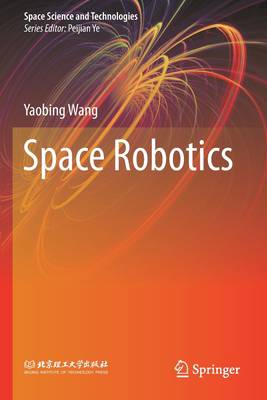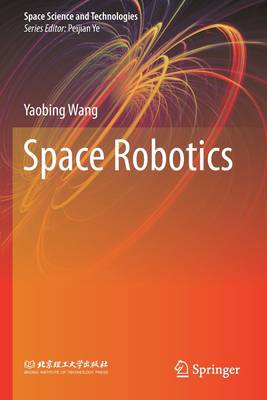
- Afhalen na 1 uur in een winkel met voorraad
- Gratis thuislevering in België vanaf € 30
- Ruim aanbod met 7 miljoen producten
- Afhalen na 1 uur in een winkel met voorraad
- Gratis thuislevering in België vanaf € 30
- Ruim aanbod met 7 miljoen producten
Zoeken
€ 209,95
+ 419 punten
Omschrijving
This book provides readers with basic concepts and design theories for space robots and presents essential methodologies for implementing space robot engineering by introducing several concrete projects as illustrative examples. Readers will gain a comprehensive understanding of professional theories in the field of space robots, and will find an initial introduction to the engineering processes involved in developing space robots. Rapid advances in technologies such as the Internet of Things, Cloud Computing, and Artificial Intelligence have also produced profound changes in space robots. With the continuous expansion of human exploration of the universe, it is imperative for space robots to be capable of sharing knowledge, working collaboratively, and becoming more and more intelligent so as to optimize the utilization of space resources. For on-orbit robots that perform service tasks such as spacecraft assembly and maintenance, as well as exploration robots that carry out research tasks on planetary surfaces, the rational integration into a network system can greatly improve their capabilities in connection with executing outer space tasks, such as information gathering and utilization, independent decision-making and planning, risk avoidance, and reliability, while also significantly reducing resource consumption for the system as a whole.
Specificaties
Betrokkenen
- Auteur(s):
- Uitgeverij:
Inhoud
- Aantal bladzijden:
- 363
- Taal:
- Engels
- Reeks:
Eigenschappen
- Productcode (EAN):
- 9789811549045
- Verschijningsdatum:
- 12/09/2021
- Uitvoering:
- Paperback
- Formaat:
- Trade paperback (VS)
- Afmetingen:
- 156 mm x 234 mm
- Gewicht:
- 535 g

Alleen bij Standaard Boekhandel
+ 419 punten op je klantenkaart van Standaard Boekhandel
Beoordelingen
We publiceren alleen reviews die voldoen aan de voorwaarden voor reviews. Bekijk onze voorwaarden voor reviews.











